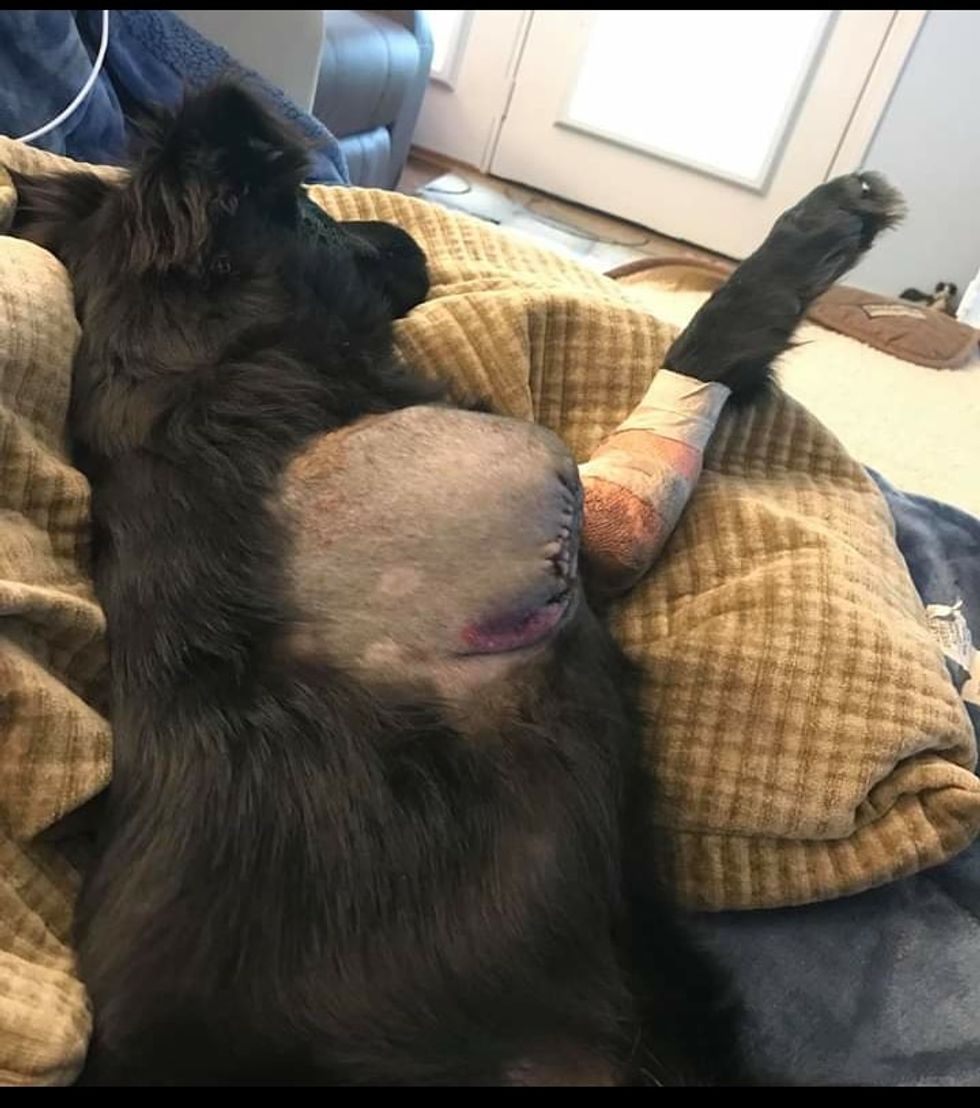On September 2, 2017, at 8 p.m. the driver of a blue late model car threw a small black puppy from their car and drove the vehicle back and forth over the helpless animal before speeding away. Moments later, Lacy stopped to avoid hitting whatever was in the middle of the road. Horrified at what confronted her, Lacy ran back to her car and grabbed a blanket. Carefully, she placed the mangled and bleeding body of the puppy in the blanket and raced to a nearby veterinary hospital.
The veterinary hospital staff stabilized the puppy but were unable to provide the care it needed. It was transported to St. Francis Community Animal Rescue and Education (CARE). St. Francis CARE, a no-kill shelter located in Southern Illinois was quick to assess the puppy's condition. The staff at St. Francis named the puppy Quaker.
According to the ASPCA, an animal is abused every minute (ASPCA, 2018). Because so many cases go unreported it is difficult to know just how many animals are abused every year. However, 70 percent of reported cases involved dogs, 21 percent involved cats, and 24 percent involved other animals (HSUS, 2018).
St. Francis CARE opened in 2007. The shelter typically houses 140-170 animals and finds forever homes for an average of 80 animals a month (Meyers, 2018). Krista, a veterinary assistant, has worked for St. Francis CARE for seven years. When asked about animal cruelty cases and what more can be done Krista said, "We do all we can through our adoption application and observation. The questions on our application have helped us to weed out some that we believed were unsuitable."
Krista is quick to point out that it isn't a perfect system. While animal cruelty goes on all over the country, Krista believes animal cruelty issues in rural areas are common.
"Many people don't recognize that their actions are cruel. They were raised to keep animals outside in conditions that expose them to extreme heat and cold. Farming communities seem to see animals as property rather than another being with whom we share the world. We recently had a case of a cat that was shot through the neck with an arrow."
Still, St. Francis programs such as Book Buddies and Christmas with Big Dog have done a great deal to educate Southern Illinois residents about the proper care of animals and animal cruelty. Volunteerism and donations of food and toys have increased every year.
Sadly, many areas don't have a St. Francis CARE and while many states and cities have animal cruelty laws that protect animals those laws often fall short, charging abusers with a misdemeanor if at all. In many cases, people don't report animal cruelty either because they don't understand what they are witnessing, or they don't believe officials will do anything.
The FBI took a step in the right direction in 2016 when it started including animal cruelty cases in its National Incident-Based Reporting System (NIBRS) and classed them as Class A felonies (For All Animals Staff, 2016). NIBRS allows law enforcement all over the country to track reported cases of animal cruelty and respond more quickly and effectively. This tool is effective only when we all work together to report animal cruelty in all its forms.
Are we doing enough to stop animal cruelty? Quaker was a victim of active or intentional cruelty. His abuser has not been caught. The veterinary staff at St. Francis were able to save Quaker. He underwent a surgery that removed his right front leg and another surgery that saved his left front leg. President of the Board of Directors at St. Francis, Diane Daugherty, shared Quakers story with Facebook followers garnering the support and love of the entire area. When he was ready to be adopted Daugherty and St. Francis went to significant efforts to find a family that would have the time to care for and love Quaker. His progress can be followed on Facebook - @Quakerthelittleblackdog
What about the cases that go unreported? What about the Quaker's that are still suffering? Abuse, both intentional and unintentional, tortures and often kills animals. More must be done to prevent animal cruelty in all its forms. The first step in prevention is education. When education fails, stronger anti-cruelty laws that empower law enforcement and include harsh penalties must be passed. Only the most stringent penalties can inhibit potential abusers and stop repeat offenders.

















